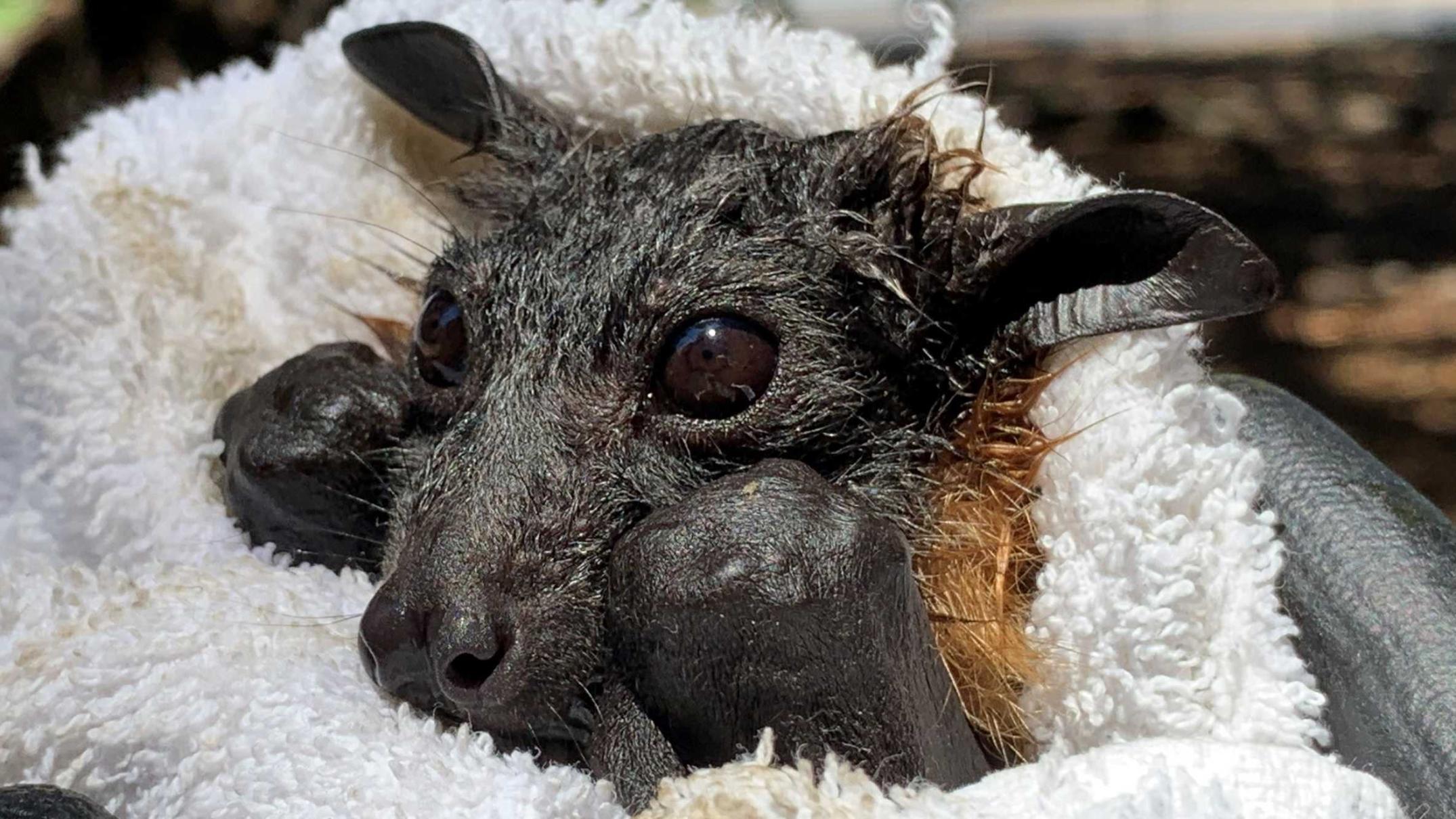A growing colony of grey-headed flying foxes are causing increasing numbers of power outages in Adelaide.
Key points:
- Grey-headed flying foxes have caused about 25 power outages in recent weeks
- SA Power Networks said it’s working to find a solution to the problem, but none has been found so far
- It says the colony has rebounded in recent times after being decimated by heatwaves in recent years
The number of flying foxes has declined in recent years amid searing heatwaves, but SA Power Networks spokesman Paul Roberts said numbers have rebounded to about 20,000.
Mr Robert said the animals had caused about 25 power outages in the northern and eastern suburbs in recent weeks.
“It looks like some of the bats are following the Torrens River valley, so to speak, and we’ve had about 25 hour or two-hour long outages,” Mr Roberts said.
He said in the latest outage, nearly 2,000 homes at Klemzig were without power after one became entangled in powerlines.
“We’ve also had a number of momentary outages where the lights flicker, because of bats flying into lines, or getting hooked up across lines or hitting other infrastructure and sadly either getting badly injured or electrocuted,” he said.
“We’re trying to deal with the issue but there’s no real magic solution because these bats have a very random pattern of foraging across the metropolitan area to look for their food.”
He said that bats had a unique physiology which puts them at greater risk than birds on powerlines.
“These bats have a wingspan of up to 1.5 metres — the typical spacing between our powerlines are either half a metre or a metre.
He said animal guards were installed when there was evidence of repeat outages caused by the bats in certain locations.
The removal of older surge arresters which can ensnare bat wings was also an ongoing project.
“We have millions of them out there on the network and it will take years to replace those,” he said.
SA Power Networks has been in discussions with Adelaide University researchers and the Department for Environment and Water about a permanent solution.
Mr Roberts said that was still a long way off, with no schemes known to fix the issue.




